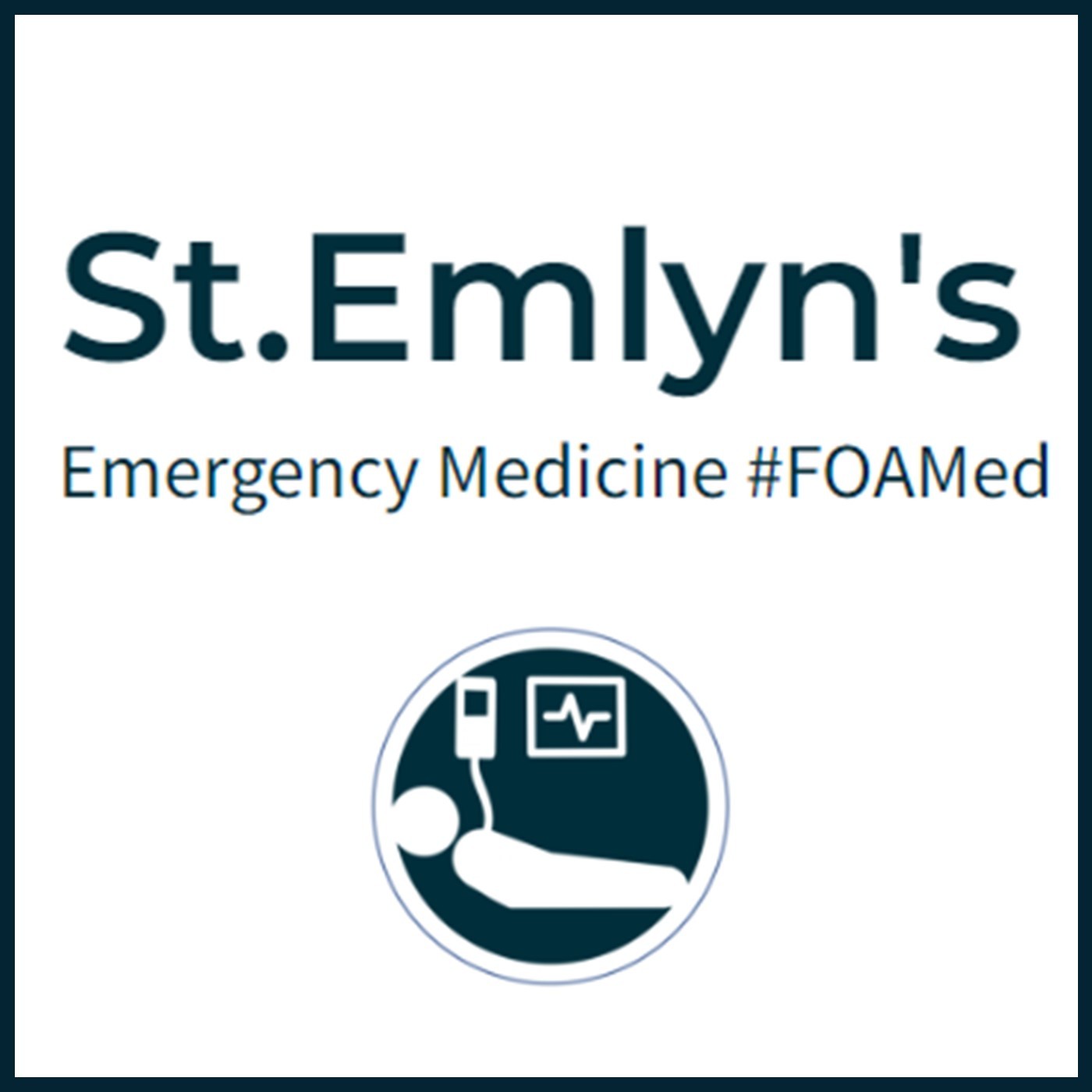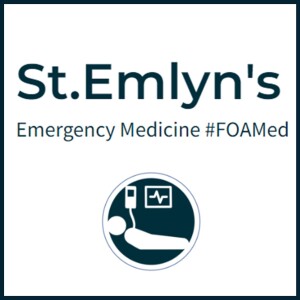
1.3M
Downloads
273
Episodes
A UK based Emergency Medicine podcast for anyone who works in emergency care. The St Emlyn ’s team are all passionate educators and clinicians who strive to bring you the best evidence based education. Our four pillars of learning are evidence-based medicine, clinical excellence, personal development and the philosophical overview of emergency care. We have a strong academic faculty and reputation for high quality education presented through multimedia platforms and articles. St Emlyn’s is a name given to a fictionalised emergency care system. This online clinical space is designed to allow clinical care to be discussed without compromising the safety or confidentiality of patients or clinicians.
Episodes

Tuesday Jul 04, 2017
Ep 95 - Burnout in Critical Care with Liz Crowe
Tuesday Jul 04, 2017
Tuesday Jul 04, 2017
Understanding and Managing Burnout in Critical Care
Introduction
In the high-stakes world of critical care, the topic of burnout has become increasingly prevalent. This blog post explores the complexities of burnout, compassion fatigue, and meaning-making among healthcare professionals, particularly those working in critical care environments. The discussion delves into how these issues manifest, their impact, and practical strategies for addressing them.
Defining Burnout
Burnout is a complex and often misunderstood phenomenon characterized by emotional exhaustion, depersonalization, and a reduced sense of personal accomplishment. It's typically measured using tools like the Maslach Burnout Inventory (MBI), which assesses the risk rather than confirming outright burnout. However, the MBI's broad questions, such as feeling tired after work, can sometimes blur the line between normal stress and clinical burnout.
Context plays a crucial role in understanding burnout. Studies indicate that burnout rates can vary significantly based on geographical location and working conditions. For example, healthcare workers in Poland or Spain may experience different levels of burnout compared to those in the UK, Australia, or the United States, influenced by factors like pay, working hours, and work environment.
The Role of Meaning-Making
Despite the challenges, many healthcare professionals find deep meaning in their work, which can mitigate the effects of burnout. Meaning-making refers to the sense of purpose and value individuals derive from their professional roles. Even when experiencing high levels of burnout, healthcare workers often continue to find their work fulfilling and significant. This intrinsic motivation is crucial for sustaining resilience in demanding work environments.
Research has shown that even when burnout indicators are high, many healthcare professionals report a strong sense of purpose. This paradox highlights that burnout and job satisfaction can coexist. The positive aspects of meaning-making can serve as a buffer against the negative impacts of burnout, helping professionals maintain a sense of fulfillment and motivation.
Understanding Compassion Fatigue
Compassion fatigue differs from burnout and is specifically related to the emotional exhaustion from continuous caregiving. It arises from the intense emotional engagement required in healthcare settings, particularly when dealing with patient suffering. Unlike burnout, which develops over time, compassion fatigue can occur suddenly and can manifest as a diminished capacity to empathize or care.
Fortunately, compassion fatigue is manageable and often reversible with appropriate interventions. Recognizing its signs—such as feelings of helplessness, exhaustion, or a sense of detachment—allows for timely action. Healthcare professionals experiencing compassion fatigue may feel guilty for not meeting their own caregiving standards, which can exacerbate the problem.
Intersection of Burnout and Compassion Fatigue
While distinct, burnout and compassion fatigue often intersect, especially in critical care settings. The intense emotional and physical demands can lead to both conditions simultaneously. For instance, the constant exposure to trauma and suffering can trigger compassion fatigue, which in turn can accelerate the onset of burnout. This interplay complicates the management of these conditions, requiring a comprehensive approach that addresses both emotional and physical well-being.
Strategies for Addressing Burnout and Compassion Fatigue
Individual Strategies:
Healthcare professionals must prioritize self-care to mitigate burnout and compassion fatigue. Essential practices include maintaining a healthy lifestyle, setting boundaries to ensure adequate rest, and engaging in activities that provide joy and relaxation. Mindfulness practices, such as meditation and yoga, can also be beneficial in managing stress and enhancing emotional resilience.
Organizational Strategies:
Organizations have a critical role in supporting their staff. Creating a supportive work environment, offering mental health resources, and ensuring reasonable workloads are fundamental steps. Regular debriefing sessions and fostering a culture of appreciation can significantly improve workplace morale and reduce burnout risk. Additionally, flexible scheduling and adequate staffing are crucial in preventing overwork and ensuring a manageable workload.
Reflective Practice:
Incorporating reflective practices into daily routines helps healthcare professionals process their experiences and emotions. This can be done through journaling, meditation, or team discussions. Reflective practice allows for a deeper understanding of one's emotional responses, helping to build resilience and reduce the risk of emotional exhaustion.
Leadership Role:
Healthcare leaders play a pivotal role in mitigating burnout and compassion fatigue. They should model positive behaviors, such as work-life balance and self-care, and advocate for systemic changes that address the root causes of these issues. Leaders should also foster an environment where staff feel safe to discuss their challenges and seek support.
Team Dynamics:
Positive team dynamics can buffer against stress and reduce the likelihood of burnout. Encouraging open communication and mutual support among team members fosters a supportive work environment. Activities that build team cohesion, such as team-building exercises and regular check-ins, can strengthen relationships and enhance collaboration.
Conclusion
Addressing burnout and compassion fatigue in critical care requires a comprehensive approach that involves both individual and organizational efforts. Recognizing these conditions, understanding their manifestations, and implementing practical strategies are essential steps toward fostering a resilient and supportive healthcare environment. At St Emlyn's, we are committed to exploring these critical issues and sharing strategies to help manage the demands of our profession. By focusing on both personal well-being and systemic changes, we can create a healthier, more sustainable work environment for all healthcare professionals.

No comments yet. Be the first to say something!